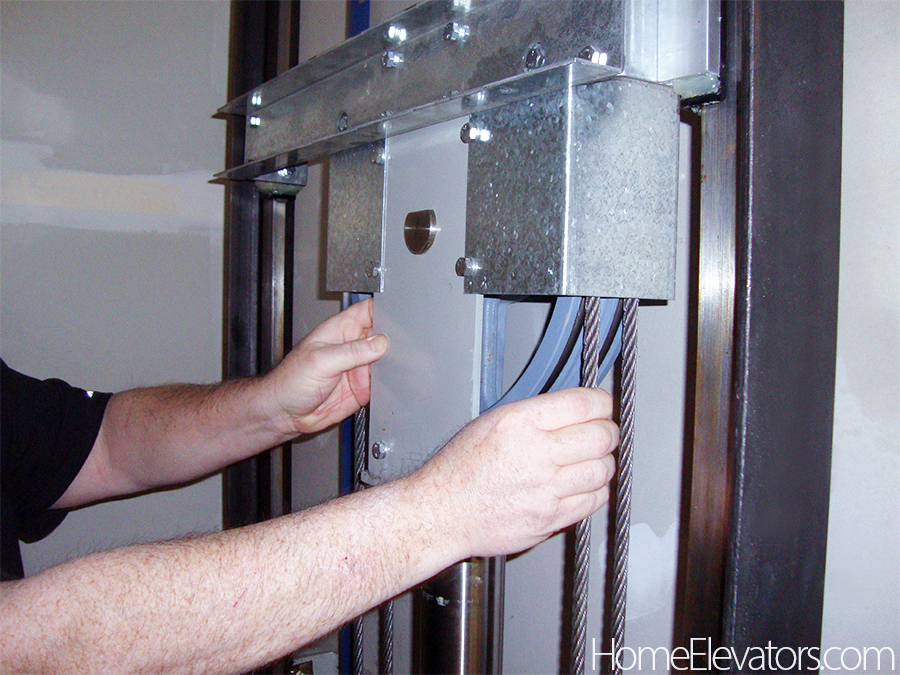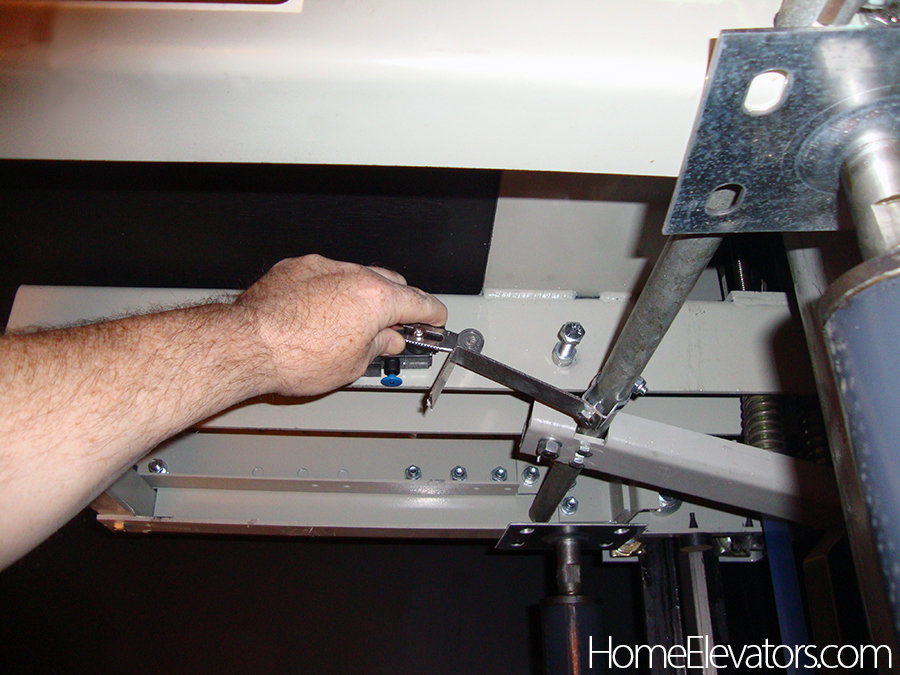The requirements for elevator inspections and testing in homes can vary depending on the location or state in which the elevator is installed. In some cases, home elevators may be subject to the same inspection and testing requirements as commercial elevators. In other cases, the requirements may be less stringent.
In the majority of states, a home elevator will need to be inspected after installation and before use. The installation company will coordinate this inspection and will need to be present to test the elevator. It’s important to note an elevator inspector does not test the elevator but rather witnesses the test and confirms the elevator meets all current code requirements. An elevator inspector will also document the process.

An initial inspection will require a full load test where the elevator is loaded with test weights to its rated capacity and then called to each floor. The braking system will also be tested while loaded with its rated capacity. For home elevators, a full load test is usually only required once after installation.
It is generally a good idea to have a home elevator inspected and tested annually, even if it is not required by law. This can help to ensure that the elevator is safe for use and identify any potential problems before they become serious. An annual inspection is usually done by the installation company and is more of a process of confirming the elevator is operating properly and still meets all current code requirements. In some jurisdictions, annual inspections may require a third-party inspector.
If you own a home with an elevator, you should check with your local building department or other relevant regulatory agency to determine the specific requirements for elevator inspections and testing in your area. In the United States, each state may have different code requirements. It is also a good idea to consult with a qualified elevator professional to determine the best course of action for maintaining the safety and reliability of your home elevator.
During an inspection, the inspector will also check for any visible signs of wear or damage to the elevator equipment and components. This may include inspecting the elevator car, hoistway, door system, control panel, and emergency stop button. The inspector will also check the elevator’s mechanical and electrical systems to ensure they are operating correctly and safely. The inspector may also review the elevator’s safety features, such as the emergency lighting and communication system, to ensure they are functioning properly.

Once the inspection is complete, the inspector will provide a report detailing any issues or concerns that were identified during the inspection. If any repairs or maintenance are needed, the inspector will provide recommendations for how to address these issues. It is important that any necessary repairs or maintenance are promptly completed to ensure the continued safety and functionality of the elevator.
Cost of elevator inspection
The cost of a home elevator inspection can vary depending on the requirements, on average the cost will typically be $500 – $1,500. The cost of an elevator inspection can also be influenced by the age and condition of the elevator, and the type of elevator being inspected. A basic annual inspection may only include a visual examination of the elevator and its components, while a more comprehensive inspection will include a functional test of all systems, a review of maintenance records, and an evaluation of the elevator’s compliance with relevant codes and standards.
It’s also important the inspector is QEI certified. A QEI or Qualified Elevator Inspector is a professional who is qualified and certified to inspect elevators and other vertical transportation systems to ensure they are in compliance with relevant codes and standards. The QEI certification is recognized by the National Elevator Industry, Inc. or NEII and is considered to be the premier certification program for elevator inspectors in the United States.
In addition to safety, regular inspections also help to extend the lifespan of the elevator and prevent costly breakdowns or malfunctions. By identifying and addressing any issues early on, homeowners can save money on repairs and insurance costs and in the long run, ensure that their elevator is reliable for years to come.